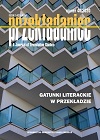TRUDNOŚCI ZWIĄZANE Z PRZEKŁADEM ELEMENTÓW KULTUROSPECYFICZNYCH W LITERATURZE KRYMINALNEJ: PRZYKŁAD CHORWACJI
CHALLENGES OF TRANSLATING CULTURAL EMBEDDEDNESS IN CRIME FICTION: CROATIA’S EXAMPLE
Author(s): Snježana Veselica-MajhutContributor(s): Aleksandra Kamińska (Translator)
Subject(s): Studies of Literature, Translation Studies
Published by: Wydawnictwo Uniwersytetu Jagiellońskiego
Keywords: crime fiction; CSI in translation; genre translation in Croatia;
Summary/Abstract: The aim of the present study is to examine the specific features of translating crime fiction genre in Croatia in the 2000s. Frederic Jameson (qtd. in Rolls, Vuaille-Barcan, WestSooby 2016) foregrounded the notion of crime fiction’s role as the new Realism due to the importance it places on historical and geographical specificity, and the social fabric of our daily lives. In line with this, an assumption could be made that the overvaluation of place in crime fiction may present a particular challenge in translation, not only in terms of translation strategies chosen by translators, but also in terms of preferable marketing strategies pursued by publishers and editors and the correspondence between them. The focus of this study is on the patterns of handling source-culture embeddedness, typical of this genre, in translation. The study examines how diverse agents (editors, translators and language revisers) involved in the production of translations of this genre interact and how their interaction influences the decisions on handling the genre’s embeddedness in a particular, source-culture, reality. As crime fiction novels are a highly popular translated genre in Croatia, crime fiction novels make a substantial portion of the production of the publishing sector. For the purposes of this study I have selected a number of crime fiction novels by several frequently translated authors (P. D. James, Ruth Rendell, Michael Connelly) that have been published by Croatian publishers of diverse profiles, ranging from well-established publishers with long presence on the market to start-ups with a relatively short market life. The data analyzed include interviews with the agents involved (translators, editors and language revisers), peritext of these editions and analysis of selected textual segments.
Journal: Przekładaniec.
- Issue Year: 2020
- Issue No: 40
- Page Range: 130-156
- Page Count: 27
- Language: Polish

